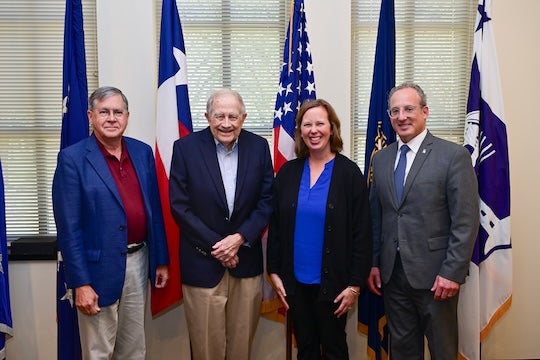Neal Lane and Lane Family Honor Women in Science with Generous Donation
In a touching tribute to both philanthropy and the contributions of women in science and technology, Neal Lane from Rice University, along with the Lane family, has generously donated $200,000 to the Baker Institute for Public Policy. This endowment will establish the Joni Sue Lane Rice University Lecture on Women in Science and Technology, dedicated to his wife, who was a dedicated staff member in the university’s computer center for many years.
The purpose of this endowment is to recognize and elevate the essential roles women play in the fields of science, technology, engineering, and mathematics (STEM). As the fund expands, it will also support various events and initiatives at the Baker Institute, creating a platform for researchers, policymakers, and industry leaders to exchange insights and stimulate discussions that will influence future advancements in these vital fields.
“This initiative is a way to bolster the Baker Institute’s Science and Technology Policy Program, ably directed by Kirstin Matthews, whom I’m honored to collaborate with, while giving back to Rice, an institution that Joni and I have cherished since we first arrived in 1966,” shared Lane, who serves as the Malcolm Gillis University Professor Emeritus, professor emeritus of physics and astronomy, and a senior fellow in science and technology policy at the Baker Institute.
This donation serves not only as a tribute to Houston but also to Joni Lane, who is currently receiving hospice care due to dementia. “Houston has been our home for most of our lives, where we raised our children. Above all, this endowment honors my wife, Joni, and all women in science and technology,” he remarked.
David Satterfield, Director of the Baker Institute, expressed profound gratitude for the Lane family’s contribution. “This endowment celebrates the vital contributions of women in science and technology and their influence on public policy. We are deeply honored by Neal Lane’s generous gift and the legacy it will create,” he stated.
Neal Lane is widely recognized for his significant contributions to both academia and public service. As a prominent physicist, he began his impactful journey at Rice in 1966 and has taken on various leadership roles, including serving as provost and holding national positions as director of the National Science Foundation and as head of the White House’s Office of Science and Technology Policy under former President Bill Clinton. His extensive career has earned him numerous accolades, such as the Vannevar Bush Award and the National Academy of Sciences’ Public Welfare Medal.
Throughout his illustrious career, Lane has remained devoted to promoting diversity and inclusion in science, a value shared by his wife. Joni Lane, an accomplished mathematician, made significant contributions to the field of computing early in her career, spearheading a programming group at the Federal Aviation Administration. Her work at Rice as a systems programmer was instrumental in developing the university’s early computing capabilities, as she provided vital support to students and faculty for nearly 20 years, helping to expand Rice’s Institute for Computer Services and Applications.
“Dr. Lane’s gift is a remarkable tribute to his wife’s achievements at Rice, and we are immensely grateful for his generosity,” remarked Stephen Bayer, Rice’s vice president for development and alumni relations.
The partnership between Neal and Joni Lane extends beyond their professional lives, rooted in a mutual love for learning, science, and family. Their journey began in Oklahoma City, where they first met in high school and later attended the University of Oklahoma together. While Neal pursued his degrees in physics, Joni focused on mathematics, nurturing her passion for computer programming along the way. Her invaluable contributions at Rice reflect her commitment to advancing technology and empowering others in their educational pursuits.
“Joni was ahead of her time,” Neal said. “She wasn’t a computer scientist when the field was still developing. However, she wrote programming code and joyfully assisted others, including students, faculty, and staff, with theirs.”
Neal emphasizes the significance of Joni’s work, stating, “Her contributions at Rice were cherished by many, including numerous students and postdocs. Her story, along with those of countless other women in the field, deserves to be recognized.”


